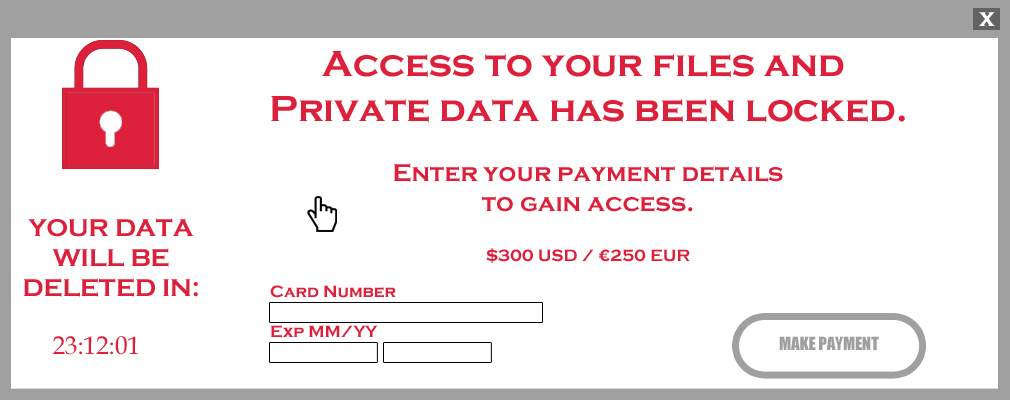Credential theft is now at an all-time high and is responsible for more data breaches than any other type of attack. With data and business processes now largely cloud-based, a user’s password is the quickest and easiest way to conduct many different types of dangerous activities. |
Smartphones and tablets are often the preferred device for communications, web searching, and accessing many types of apps. They’re more portable and can be used from anywhere. We’re seeing the takeover of many activities that used to be performed on traditional computers. Now, people are using mobile devices instead. |
Skilled hackers can easily access your system and steal precious business information. Upgrading your cybersecurity can help address this problem. Taking your cybersecurity seriously is a must. Otherwise, you leave the door open for criminals to compromise your business’s privacy and cause legal troubles. |
The reality is, mobile devices are less safe than desktop computers. Boosting security on such devices is essential if you use them in business. Technological breakthroughs have streamlined your operations in several ways. Primarily, you can now use mobile devices to make your communication and data sharing more convenient. |
Phishing can lose you a lot of money and expose sensitive information. Microsoft 365 Defender can dramatically mitigate this risk with several features. Phishing attacks are a severe threat to your business. These fraudulent actions can cause your team members to accidentally share financial, customer, and account information with cybercriminals. |
There are numerous suites of apps that can improve your productivity. One of them is Office 365, which features an array of underappreciated tools. Office 365 has helped millions of organizations streamline their operations. One of the most famous examples involves Kohler, the manufacturer of kitchen and bath fixtures and plumbing. |
Conducting small business operations in the digital world is prone to security risks. Mitigating them would be impossible if you don’t have an IT compliance policy.
Setting up a robust IT compliance policy in your small business is more important now than ever. And it’s because most organizations now depend on digitized services.
How will your business respond when faced with an unexpected situation? With a business continuity plan, you’ll know exactly what steps to take. Leading a small business is a challenging endeavor. |
Microsoft’s latest operating system is starting to take the world by storm. But before jumping ship and upgrading to the new OS, better read this first. It’s finally here. |
Despite Microsoft hailing Windows 10 as "the last Windows ever," Windows 11 was teased in June 2021 and formally announced in July. Early leaked versions show a more user-friendly interface, better security, a funky dark mode, and a streamlined taskbar. And the announcement itself focused on widgets; touch, pen, and voice support; support for different desktop wallpapers on different computers; and an all-new Windows store.
Essentially, it feels a bit like the upgrade from XP to Vista, for those who remember that. But not necessarily in a negative way.
More than 1.4 million companies currently used Office 365. Small businesses have made the move to Office 365 because it makes the most sense. It's easy to use and works well in your organization. You get software updates, security fixes, and access to your important business documents anytime from anywhere on any device.
What most people assume is that your data, whether it be your email or OneDrive, is automatically backed up in the cloud. This is the biggest misconception for Office 365.
As everyone knows, installing Windows 10 updates can be full of headaches. Over the years, Microsoft would release updates that would damage other functions or features within the operating system. However, it's a catch 22. It's imperative that small businesses patch and update their computers to keep them running safe, secure, and in tiptop shape.
Microsoft releases a feature update twice a year. The typical release dates are once in the spring, and once in the fall . Feature updates are significant updates to the operating system that does both security patching, and adds new features to the operating system. These updates typically take longer, and require more resources to successfully complete.
Have you ever wondered what the deal is with ransomware? You may have read it about it online or heard it on the news. You may know a friend that got hit with ransomware or know of another business that did. If you want to know a little bit more about ransomware and how to protect your small business, you've come to the right place.
What exactly is ransomware?
Ransomware, or sometimes called ransom malware, is a type of malware that prevents you as a user from accessing any of the data on your computer or being able to access your computer at all. All of your documents, whether it be PDFs, word documents, or QuickBooks files, won’t be accessible. You can try to open them, but the computer won't let you. Your computer is basically rendered useless unless you pay the ransom to the bad guys so they can send you a key to unlock all of your encrypted files. In the late 80s, payment was sent to the bad guys via snail Mail. Nowadays, the bad guys want payment sent via cryptocurrency or even your credit card. Statistics show, that only 50% of paid ransoms actually get the key returned to unlock your small business files.
There seems to be a common myth among small business owners that their computers and information aren't what hackers really look for. They don't really have an interest in attacking the little guys. These assumptions have been proven to be wrong.
Studies have shown that cyberattacks target small business at a very high rate. In fact, the Verizon 2019 data breach investigations report has shown that 43% of cyberattacks target small businesses. The criminals who launched these attacks look for easily accessible data for their benefits. Data such as credit card details, customer contact information, or other personal information is what they strive for.
Software engineers and companies are always looking to address issues with their hardware when it comes to security. Hardware issues are exponentially more dangerous than software issues. Why? Because hardware is a manufactured piece of equipment and can only be changed by remanufacturing new hardware. Software can be updated or changed instantly through an online update.
With that being said, there is a new discovery of a flaw in a range of Intel chips in PCs. Currently, this flaw has not been exploited yet, however, if it does, a user can be granted backdoor access to your small business PC putting all of your business data and sensitive information at risk.
This new vulnerability is now referred to as the “SWAPGS” security flaw. This security flaw was discovered by a bit defender researcher and presents a highly dangerous security flaw in most modern Intel chips.














